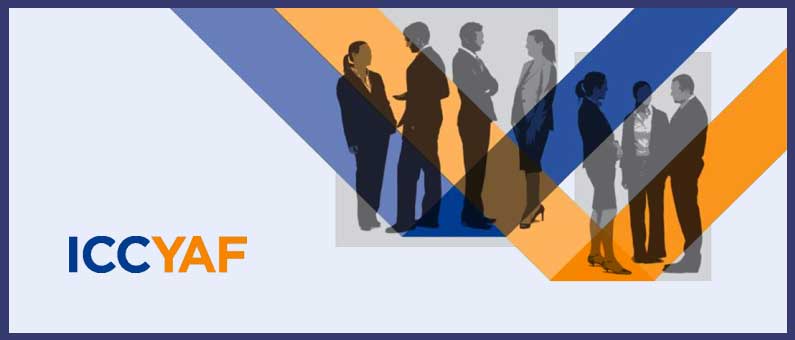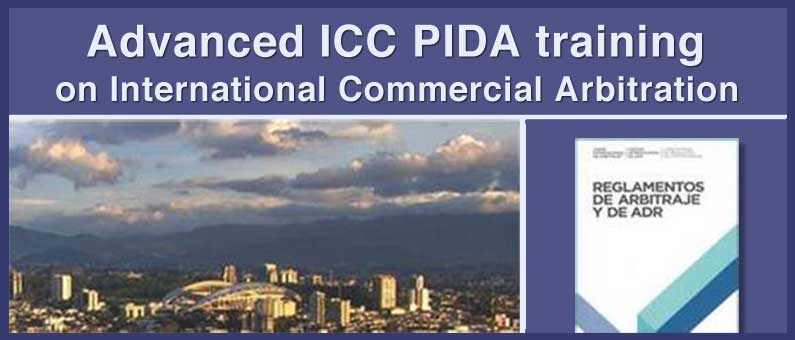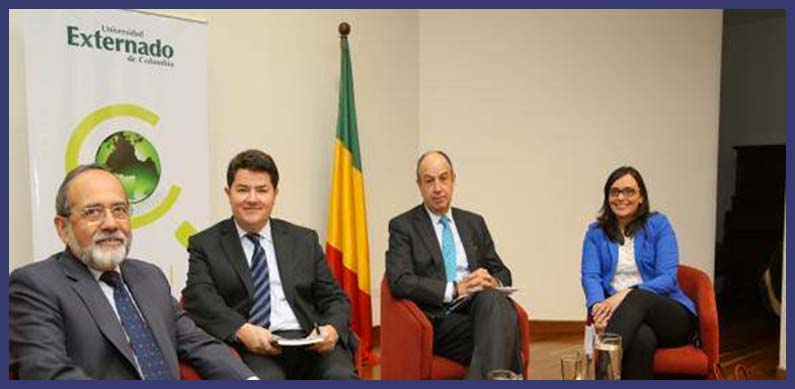
Speaker at the ICC YAF Conference: Monistic VS dualistic arbitration regimes
Diana Correa will be speaker the 29th of May 2015 at a ICC YAF Conference. This conference entitled Monistic VS dualistic arbitration regimes – Most frequent issues will take place during the Advanced ICC PIDA Training on International Commercial Arbitration organized by the Institute of World Business Law of the ICC, to be held from 26 to 28 May. The PIDA Training will provide an in-depth understanding and first-hand experience of the ICC Arbitration procedure under the ICC Rules of Arbitration.
The ICC YAF conference will address topics such as the differences between monistic and dualistic regimes and procedures in arbitration, the criteria to determine the internationality of arbitrations, disparity in the annulment of awards in domestic and international arbitrations, among others.
For more information please download the Spanish programme below.
Download

Speaker at the advanced ICC PIDA Training on International Commercial Arbitration
Esta formación propociona la experiencia y comprensión del procedimiento de arbitraje de la ICC a través de sesiones prácticas e interactivas.
Basándose en la experiencia de árbitros de reconocido prestigio internacional, esta formación de nivel avanzado proporciona un conocimiento profundo y la experiencia sobre el procedimiento arbitral, en virtud de las Reglas de Arbitraje de la ICC 2012.
Mediante el uso de un enfoque práctico, a través del estudio de un Nuevo Caso diseñado recientemente por ICC, para hacer frente a las situaciones que se presentan durante las actuaciones arbitrales complejas; el participante obtendrá las habilidades y competencias necesarias para un procedimiento arbitral, que van desde la elaboración de la solicitud y respuesta, a la preparación de los testigos y la simulación de una audiencia.
Dirigido a: Abogados en ejercicio, asesores de empresas, árbitros, jueces, académicos, expertos en resolución de conflictos y personas con experiencia de arbitraje comercial Internacional, que deseen profundizar sus conocimientos prácticos y compartir sus puntos de vista.
Objetivos: Entender las reglas de arbitraje de la ICC 2012 y la práctica del arbitraje comercial internacional. Preparar y redactar la solicitud de arbitraje y su respuesta para ser presentada al Tribunal Arbitral en grupos de trabajo. Identificar los problemas y el papel de la Secretaría de la Corte de la ICC durante todas las actuaciones arbitrales. Seleccionar y designar árbitros idóneos.
Panelistas:
- Eduardo Zuleta. Gómez Pinzón Zuleta Abogados S.A (Colombia)
- Diana Correa. Doctora en derecho internacional (Colombia)
- Ignacio Suarez Anzorena. Clifford Chance (Argentina – Estados Unidos)
- Deva Villanúa. Arnesto & Asociados (España)
- José Ricardo Ferris. Secretario General adjunto de la Corte Internacional de Arbitraje de la ICC (Francia)
- Dyalá Jiménez. DJ Arbitraje (Costa Rica)

Panelist on Litigation Strategy in International Investment Arbitration
Second competition in International Investment Arbitration held by Washington University, Externado University, the Bogota Chamber of Commerce (BCC) and The International Centre for Settlement of Investment Disputes (ICSID), April 6, 2015
